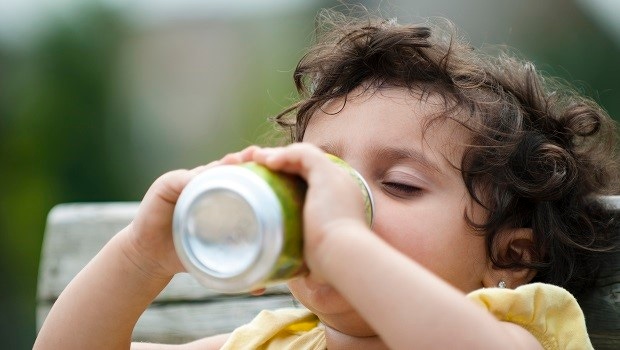No matter who you are, you’ve likely heard the latest buzz about energy drinks, i.e., the recent study led by researchers at the Yale School of Public Health that links energy drinks to hyperactivity in children.
February 19, 2015

For those who keep tabs on the energy drink sector, or for those with children, or for those who consume energy drinks—wait a second, who else is there?
My point is, no matter who you are, you’ve likely heard the latest buzz about energy drinks, i.e., the recent study led by researchers at the Yale School of Public Health that links energy drinks to hyperactivity in children.
If not, let me get you up to speed. The cross-sectional study was released last week, and examined the effects of energy drinks on 1,649 children ages 10 to 14 years. The students—who were randomly selected from 12 Connecticut schools—reported the amount and variety of sweetened beverages (including energy drinks) they consumed in the past 24 hours. Hyperactivity was measured using a questionnaire, also completed by the students.
Results suggest risk of hyperactivity increased 14 percent for each additional sweetened beverage consumed. For those who reported consuming energy drinks, the risk increased 66 percent.
Not surprisingly, the authors suggested limiting children’s consumption of sweetened beverages and energy drinks. Specifically, they suggest the focus should be on energy drinks, along with emerging sports and sweetened coffee drinks. “Interventions to reduce sweetened beverage consumption should explicitly focus on energy drinks and other emerging sweetened beverages such as sports and sweetened coffee drinks," the authors wrote.
While the possibility of imposing limits or bans on beverages—even those positioned as energy drinks or those with caffeine—seems unlikely here in the United States, the concept in not unprecedented.
As noted by Jonas Felliciano, senior beverages analyst at Euromonitor International, in INSIDER’s digital issue, Investigating Energy Drinks, some countries have already imposed age-related bans on energy drinks; Lithuania banned energy drinks for consumers under the age of 18 last year, while the United Arab Emirates banned energy drinks for consumers under the age of 16. Others, including Belarus, India, South Africa and Thailand, require warnings about caffeine content on product labels.
“… The most talked about (and possibly most damaging) type of regulation involves age restrictions," Felliciano wrote. “Whether done purposefully or not, the marketing and flavors associated with many of the top energy products appeal to younger consumers."
The age bans in Lithuania and the UAE not only impact the revenues of energy drink manufacturers, but have also drawn more (negative) consumer attention to the safety of energy drinks, which has long been a hot topic.
However, energy drinks aren’t the only beverage category that’s been hit with age-related bans. Russia’s Vologda region banned in January the sale of carbonated drinks containing caffeine or plant extracts to minors. The ban applies to Western soft drinks such as Coca Cola and Mountain Dew, as well as the region's domestic products. Under the law, sale of carbonated caffeine drinks is also prohibited in children’s, educational and medical institutions, along with cultural and sports centers.
As reported by The Moscow Times, Yevgeny Korotkov, chair of the local parliament's committee on economic policy and property, said the restrictions are based on an "expert opinion" that the beverages have a negative impact on the bodies of children and adolescents.
Despite the cloud of negative press surrounding caffeine, there does appear to be a silver lining for the ingredient. In January, the European Food Safety Authority (EFSA) released a draft scientific opinion on caffeine, which found that consuming up to 400 mg of caffeine in a day, or a single dose of up to 200 mg, does not present a safety concern for adults. EFSA also found that daily consumption of 200 mg of caffeine by a pregnant woman does not raise a safety concern for the fetus.
One thing’s for sure—not much is for sure for the future of energy drinks. While the burgeoning market certainly isn’t going anywhere, it will be interesting to see if (and how) the regulatory environment develops, and how manufacturers will evolve in light of those developments. In fact, some companies are already exploring use of altrenative energy sources in lieu of caffeine in beverages. Who knows? We could be approaching the next big wave in product development and beverage innovation.
You May Also Like




.png?width=800&auto=webp&quality=80&disable=upscale)